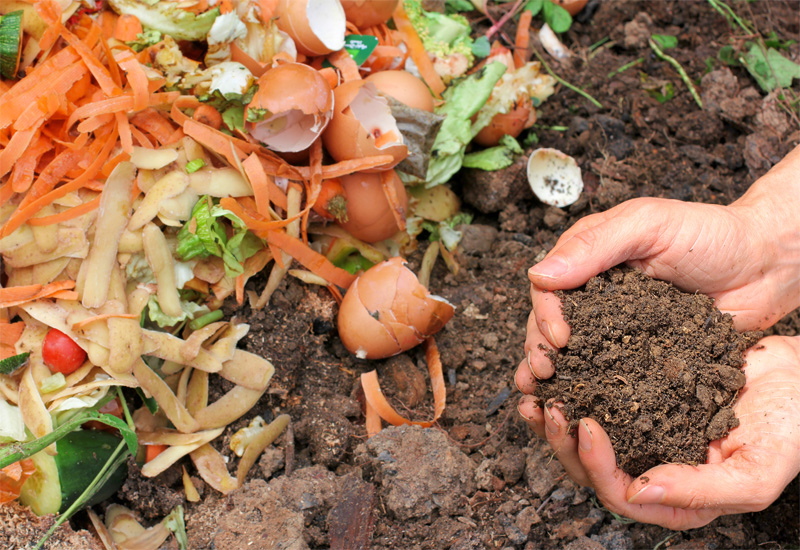EXCESS FOOD — WHERE DOES IT GO?
With Ramada Ajman, whatever minimal waste is produced is dealt with in a humanitarian manner. Hamdani reveals: “The hotel has teamed up with Al Ihsan Charity Association, which helped us distribute packed meals created out of our restaurant’s excess food to limited income families in the neighbouring community. We started this initiative during Ramadan in 2013 and have continued with it recently.”
However, Al Maha resort does face certain challenges with reusing or giving away leftovers — HACCP needs to be considered and often means leftover food cannot be used for staff kitchens and the like. Miras says: “Due to our remote location we have not considered the possibility of giving away leftovers, although I understand Starwood does encourage this practice as part of social responsibilities. Composting was considered but the initial cost of implementation was prohibitively expensive.”
He adds: “Giving away to staff is the common sense thing to do, however HACCP prevents us from doing so as the criteria for health and safety is very strict; we do it where allowed.”

| Advertisement |
Kalwani agrees and says: “Unfortunately, in this region, the laws are very strict against allowing dispersion of leftover foods to any institutions. Luckily for us, our ordering procedures are so well controlled that we have very little food waste as most of our dishes are made to order; we are able to order fresh ingredients when necessary to top up our stock levels.”
Taquet says he does have hopes to further reduce food waste and recycle it. He says: “Our dream would be to invest in our own large scale composting machine, much like the one used at Ramada Ajman. Having an on-site (semi) permaculture garden where we can use the compost to grow our own vegetables and then make healthy, daily dishes from our own produce would be incredible.”
Kalwani agrees and says: “We would like to invest in a food compost system. However, currently we have put that on hold due to space and budget restraints.”
CHALLENGES AND SUPPORT NEEDED
So there are a few obstacles in the path of true sustainability in terms of food waste — hygiene and food safety, resources available, finances. Does the government support recycling and food waste as well?
The Dubai Municipality has firm regulations in place for excess food at events catering and buffets, with the organisation partnering with charities to ensure any salvaged food doesn't go to waste.
Dubai Municipality's food control department's food health inspection officer Mohammad Khaild Saeed told Caterer Middle East last year that the organisation had launched a campaign to collect excess food to distribute it to those in need in 2008.
The municipality partnered with local charities to reduce food wastage and help those who needed it. Three approved charities are allowed to collect excess food from events in specially-equipped vehicles — with hot-holding and freezing capabilities — to serve the needy.
Hamdani says he doesn’t think there are limiting factors in terms of being 100% sustainable. He adds: “The government supports us in this food sustainability.”
Taquet however, disagrees, and says there are certain obstacles in the path to being completely sustainable.
He says: “If we consider 100% sustainable in this case to mean zero food waste to landfill then the biggest limitation is the setup of supply chain, which sees wastage at every step. We need to take a macro look at the economics, supply and demand of the globalised food industry. Only when the right incentives and systems are in place to ensure every bit of produce gets used will we see positive change.”
Kalwani also admits there are limiting factors. She says: “I would say it is mostly resources. As worthy as CSR activities may be, they cost money. This is certainly true for an SME like Pantry Café where funds are limited.”
Miras has a few suggestions; he says: “I think there should be easier access to recycling facilities or some sort of governmental recycling initiative to help all hotels be a lot greener. Just as an example, we have been looking at possibilities to recycle all our glass, paper, and aluminium, and have only found companies that would charge us for these services. It should be free and promoted by the municipality.”
Kalwani adds: “One area where we would like to see a change is in allowing for distribution of leftover foods like they do in other countries. For example labour camps are an area that businesses could support. I believe that once this channel is opened there can be an organised set up for many companies in the F&B industry to be able to distribute their end day food wastages.”
Taquet concludes: “Food waste is definitely a resource for the UAE, we just need to view it in that perspective. We would love to see an Emirate-wide solution for diverting food waste from landfills.
Whether it’s a large scale composting facility or a waste water system to generate fertiliser and capture methane, the solutions that have been piloted in big cities across the world give us many solutions to choose from.”









 Search our database of more than 2,700 industry companies
Search our database of more than 2,700 industry companies









